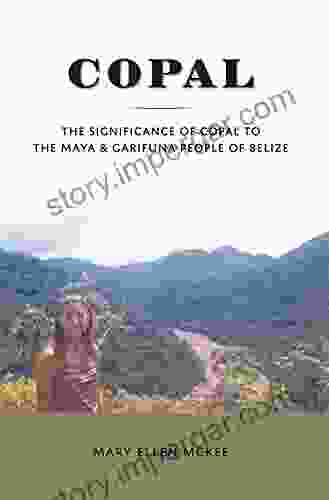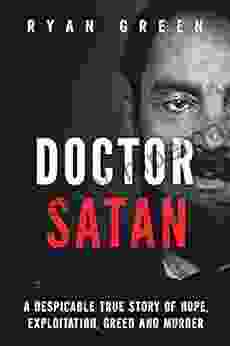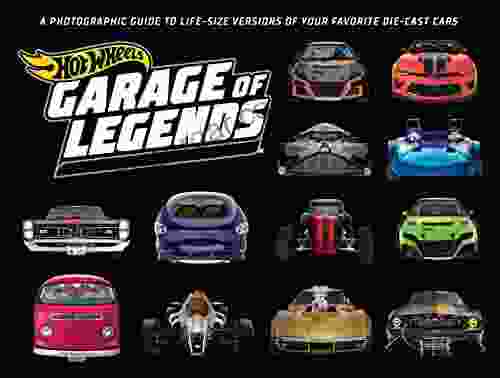On Two Dogmas of Epistemology: A Critical Examination

In his influential paper "On Two Dogmas of Epistemology," W.V.O. Quine challenges two widely held beliefs about knowledge: the dogma of the analytic-synthetic distinction and the dogma of the reduction of knowledge to experience. Quine argues that these dogmas are untenable and that they lead to a misguided view of the nature of knowledge.
5 out of 5
| Language | : | English |
| File size | : | 2245 KB |
| Text-to-Speech | : | Enabled |
| Screen Reader | : | Supported |
| Word Wise | : | Enabled |
| Print length | : | 224 pages |
| Lending | : | Enabled |
The dogma of the analytic-synthetic distinction holds that there is a sharp distinction between analytic statements, which are true by virtue of their meaning, and synthetic statements, which are true by virtue of the way the world is. Quine argues that this distinction is not as clear-cut as it is often made out to be. He points out that many statements that are traditionally considered to be analytic, such as "All bachelors are unmarried," can be false in certain circumstances. Conversely, many statements that are traditionally considered to be synthetic, such as "Grass is green," can be true by virtue of their meaning.
The dogma of the reduction of knowledge to experience holds that all knowledge is ultimately based on experience. Quine argues that this dogma is also untenable. He points out that there are many things that we know that we cannot have learned from experience, such as the existence of other minds. He also argues that experience is not always a reliable source of knowledge. We often make mistakes in our observations, and we can be misled by our senses.
Quine's critique of these two dogmas has had a profound impact on the field of epistemology. It has led philosophers to question the traditional foundations of knowledge and to develop new ways of thinking about the nature of knowledge.
The Analytic-Synthetic Distinction
The analytic-synthetic distinction is one of the most fundamental distinctions in philosophy. It is often said that analytic statements are true by virtue of their meaning, while synthetic statements are true by virtue of the way the world is. For example, the statement "All bachelors are unmarried" is said to be analytic because its truth can be seen simply by understanding the meaning of the terms "bachelor" and "unmarried." The statement "Grass is green," on the other hand, is said to be synthetic because its truth cannot be seen simply by understanding the meaning of the terms "grass" and "green." We must also know something about the world in Free Download to know that grass is green.
Quine argues that the analytic-synthetic distinction is not as clear-cut as it is often made out to be. He points out that many statements that are traditionally considered to be analytic, such as "All bachelors are unmarried," can be false in certain circumstances. For example, if we were to discover that there is a married man who has never been married, then the statement "All bachelors are unmarried" would be false. Conversely, many statements that are traditionally considered to be synthetic, such as "Grass is green," can be true by virtue of their meaning. For example, if we were to define "green" as "the color of grass," then the statement "Grass is green" would be true by virtue of its meaning.
Quine's critique of the analytic-synthetic distinction has been influential in the field of philosophy. It has led philosophers to question the traditional foundations of knowledge and to develop new ways of thinking about the nature of knowledge.
The Reduction of Knowledge to Experience
The dogma of the reduction of knowledge to experience holds that all knowledge is ultimately based on experience. This dogma is often traced back to the empiricist philosophers of the 17th and 18th centuries, such as John Locke and David Hume. Locke argued that all of our ideas come from experience, and Hume argued that all of our knowledge is derived from impressions, which are the basic units of experience.
Quine argues that the dogma of the reduction of knowledge to experience is also untenable. He points out that there are many things that we know that we cannot have learned from experience, such as the existence of other minds. He also argues that experience is not always a reliable source of knowledge. We often make mistakes in our observations, and we can be misled by our senses.
Quine's critique of the dogma of the reduction of knowledge to experience has also been influential in the field of philosophy. It has led philosophers to question the traditional empiricist view of knowledge and to develop new ways of thinking about the nature of knowledge.
In his paper "On Two Dogmas of Epistemology," W.V.O. Quine challenges two widely held beliefs about knowledge: the dogma of the analytic-synthetic distinction and the dogma of the reduction of knowledge to experience. Quine argues that these dogmas are untenable and that they lead to a misguided view of the nature of knowledge. Quine's critique of these two dogmas has had a profound impact on the field of epistemology. It has led philosophers to question the traditional foundations of knowledge and to develop new ways of thinking about the nature of knowledge.
5 out of 5
| Language | : | English |
| File size | : | 2245 KB |
| Text-to-Speech | : | Enabled |
| Screen Reader | : | Supported |
| Word Wise | : | Enabled |
| Print length | : | 224 pages |
| Lending | : | Enabled |
Do you want to contribute by writing guest posts on this blog?
Please contact us and send us a resume of previous articles that you have written.
 Book
Book Novel
Novel Page
Page Chapter
Chapter Text
Text Story
Story Genre
Genre Reader
Reader Library
Library Paperback
Paperback E-book
E-book Magazine
Magazine Newspaper
Newspaper Paragraph
Paragraph Sentence
Sentence Bookmark
Bookmark Shelf
Shelf Glossary
Glossary Bibliography
Bibliography Foreword
Foreword Preface
Preface Synopsis
Synopsis Annotation
Annotation Footnote
Footnote Manuscript
Manuscript Scroll
Scroll Codex
Codex Tome
Tome Bestseller
Bestseller Classics
Classics Library card
Library card Narrative
Narrative Biography
Biography Autobiography
Autobiography Memoir
Memoir Reference
Reference Encyclopedia
Encyclopedia Tracy Crow
Tracy Crow Martin Mulligan
Martin Mulligan Moe Metwally
Moe Metwally Mark Clark
Mark Clark Markus Kapferer
Markus Kapferer Mariette Himes Gomez
Mariette Himes Gomez Maria Golia
Maria Golia Promise Land Farms
Promise Land Farms Maggie Elliott
Maggie Elliott Martin Keller
Martin Keller Martin Meisel
Martin Meisel Patrick L Osborne
Patrick L Osborne Mark M Smith
Mark M Smith Richard Bauckham
Richard Bauckham Marian Petre
Marian Petre Wade Roush
Wade Roush Miriam Goldby
Miriam Goldby Paul Simpson
Paul Simpson Mark Andrew Cochran
Mark Andrew Cochran Nicole Miyuki Santo
Nicole Miyuki Santo
Light bulbAdvertise smarter! Our strategic ad space ensures maximum exposure. Reserve your spot today!
 Deion SimmonsFollow ·5k
Deion SimmonsFollow ·5k Ismael HayesFollow ·2.1k
Ismael HayesFollow ·2.1k Ian PowellFollow ·14.6k
Ian PowellFollow ·14.6k Steven HayesFollow ·18.2k
Steven HayesFollow ·18.2k Jaime MitchellFollow ·8.5k
Jaime MitchellFollow ·8.5k John SteinbeckFollow ·16.2k
John SteinbeckFollow ·16.2k Cormac McCarthyFollow ·14k
Cormac McCarthyFollow ·14k Ernest HemingwayFollow ·13.7k
Ernest HemingwayFollow ·13.7k
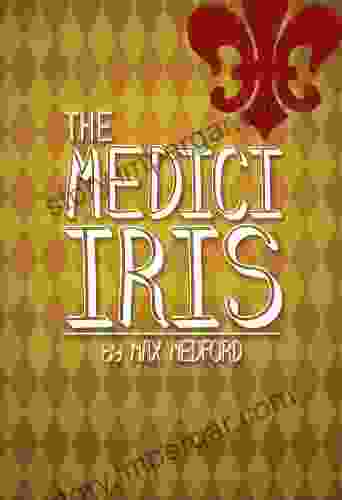
 Roberto Bolaño
Roberto BolañoUnveiling the Beauty and History of the Medici Iris: A...
In the realm of...
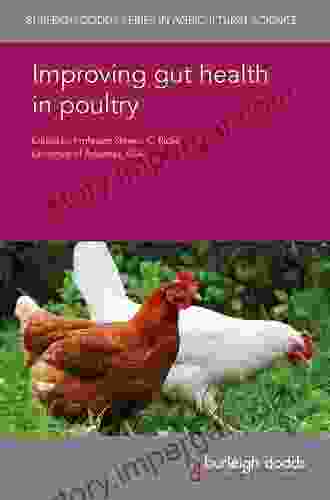
 Theodore Mitchell
Theodore MitchellImproving Gut Health in Poultry: Unlocking the Path to...
In the ever-evolving field of...

 Victor Hugo
Victor HugoPersonalized Medicine with a Nanochemistry Twist:...
The future of healthcare...
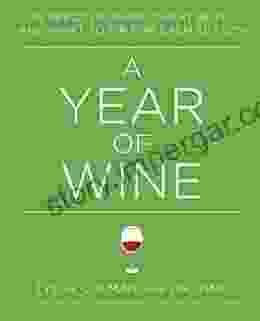
 George Martin
George MartinA Year Of Wine: Perfect Pairings Great Buys And What To...
## Year of Wine: An Epic Journey Through the...
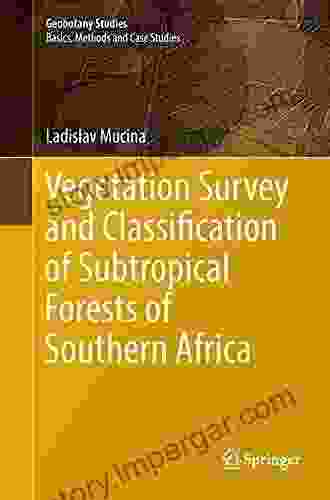
 Tom Hayes
Tom HayesDelve into the Enigmatic World of Southern Africa's...
Embark on a captivating journey through the...
5 out of 5
| Language | : | English |
| File size | : | 2245 KB |
| Text-to-Speech | : | Enabled |
| Screen Reader | : | Supported |
| Word Wise | : | Enabled |
| Print length | : | 224 pages |
| Lending | : | Enabled |



